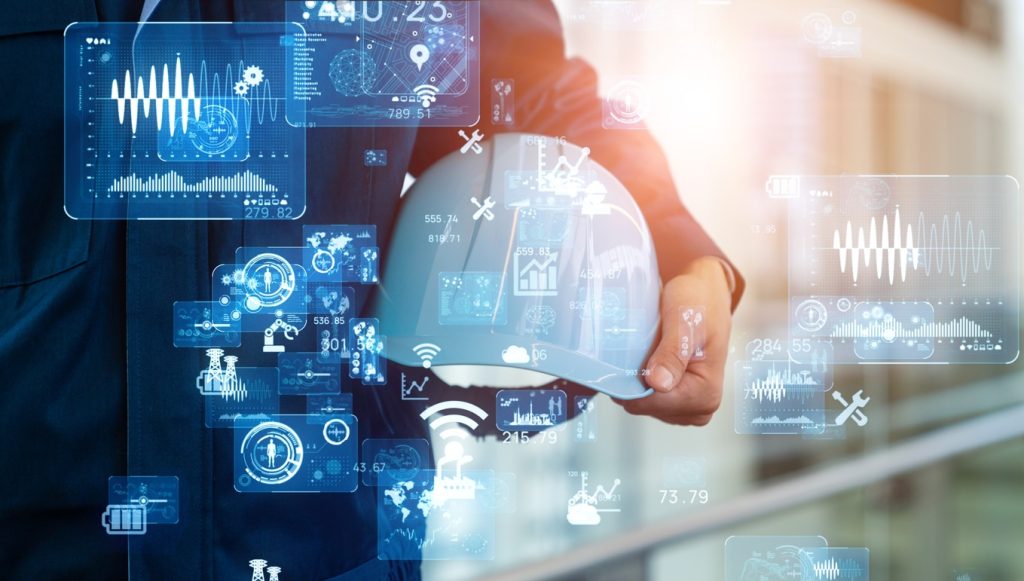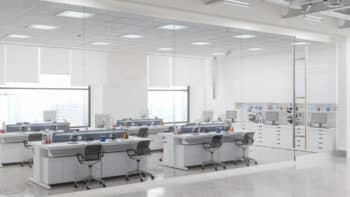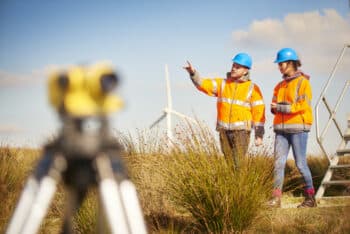As one of the world’s oldest professions, it should come as no surprise that the way we build structures has undergone a fair bit of evolution over the centuries. Design, planning, and building have all intersected with technological developments to help make jobs more efficient and improve the safety of both construction projects and the structures themselves.
Such technological developments have, of course, extended to using artificial intelligence (AI) in a variety of different ways to boost efficiency and innovation. But AI as a term covers a lot of ground, even in construction. It can mean anything from data-crunching networks and data-collecting sensors to actual, sci-fi-like robots laying bricks all by themselves.
With that said, it’s probably still too early to truly predict how AI will impact on the construction industry. However, it should be emphasised that AI’s involvement in construction is to reinforce – rather than replace – the efforts of human workers. Through AI, it’s hoped that construction will become safer and more efficient, and that companies can assist the needs of workers in the appropriate manner.
Here, we’ll take a closer look at the potential impact AI might have on different aspects of the construction industry.
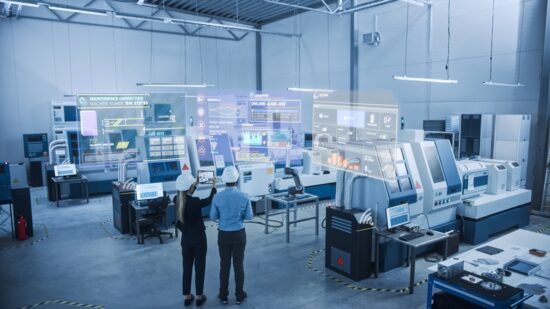
Scheduling
Construction managers have found success using AI to automate particularly mundane tasks that are nevertheless essential to their operations, especially with regards to scheduling. AI has come in useful to prevent delays, conflicts, and a slew of other issues.
And although employees will likely be able to manage complicated construction schedules and processes themselves on small-scale projects, the same might not be true of larger ones. Large-scale, multi-year projects that involve co-ordinating tasks, staying up to date with designs and permits can be tough to manage.
However, machine learning can spot patterns and anomalies in data. Through pattern recognition and historical data, as well as connections to scheduling systems and other associated info, AI has been shown to optimise schedule management.
This allows companies to spot potential issues faster than humans, preventing pricey delays on sites and amongst anyone else involved in the process.
Risk mitigation
Part of reducing the costs that come with delays and issues is identifying potential risks associated with construction projects. And AI is particularly adept at running through what-if scenarios and informing contingency plans as a result.
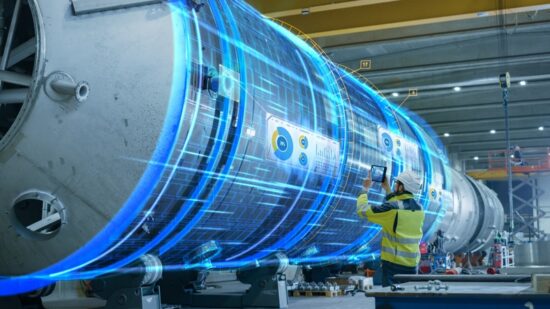
Much like what it uses for scheduling, the same pattern detection software can also be used to look for common trends in the project. After identifying these trends, AI can extrapolate what might happen if any delays or incidents are encountered, running through multiple scenarios very quickly. This allows organisations to deal with unexpected situations without falling behind schedule.
Safety
In a physical environment where hazards, malfunctions and dangers are so common, a construction site that can help keep such things to a minimum will ideally be a safer one. To this end, modern machines and equipment optimised with various sensors have been shown to improve the overall function and operation of complex machinery.
These sensors, which can monitor things such as temperature and engine condition, can be combined with AI in order to monitor construction sites further. By analysing data in real time, these tools can accurately predict problems, delays and malfunctions that might occur.
These sensor-optimised devices are also being used to minimise the dangers human workers may face on construction sites. AI-enabled systems can watch what’s going on around-the-clock without distractions. And with things like facial recognition and object recognition technology too, AI systems can detect unsafe behaviour and alert the construction team of any potential hazards.
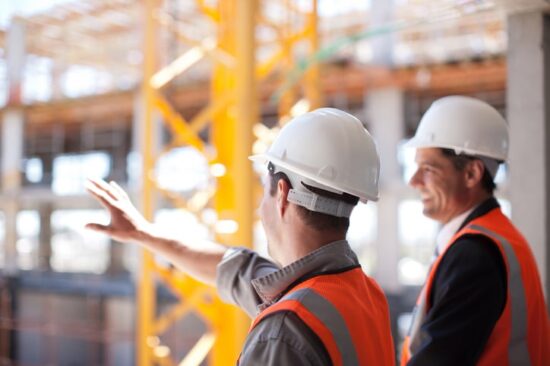
And while physical injuries are part of the risk, physical ailments like heat exhaustion are also an issue too. From training to fieldwork, AI is helping to keep workers safe. Things such as smart helmets and vests that measure biometric data (like body temperature and heart rate) ensure workers don’t exert themselves too heavily, while AI used on construction training programmes can realistically simulate real-world safety scenarios, guiding workers through the appropriate responses, all while in a classroom environment.
As this technology develops, safer sites with reduced liability and increased efficiency should become more commonplace throughout the industry.
Security
AI-enabled systems with surveillance capabilities will also offer an extra layer of security. With expensive equipment and machinery in play, the potential for theft is high.
Construction sites are using AI to automatically monitor security footage to catch suspicious activity as it happens, alerting for movement and keeping a watchful eye on specific actions or images that come into frame. If anyone attempts to steal something from the site, the AI can easily send out alerts to the necessary personnel.
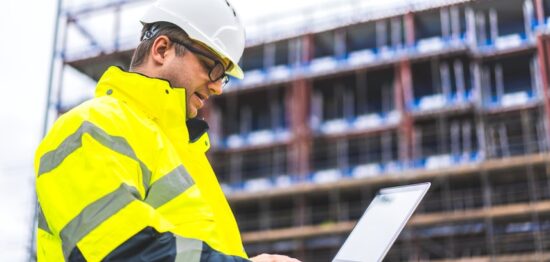
Labour shortages
Dwindling workforces are a real problem in construction, so retaining talent matters now more than ever. AI can once again be used to address this issue, using gathered data and machine learning algorithms to draw out insights and inferences from existing workforces or a collection of potential new hires.
It’s thought that AI can identify potential leaders, predict the rate at which people leave, or identify employees in danger of leaving. Companies that can make data-driven hiring decisions will be in a better position to attract the best talent and identify happy, engaged employees.
AI use in construction is still in its infancy, though a small number of start-ups have been gaining attention for their AI-focused approach to construction. However, as AI as a whole continues to deliver results, the construction industry could well increase its adoption of various AI technologies.
In the next few years, there’s a strong chance that AI will continue to drive cost savings, time savings, and overall improvements and efficiencies within the construction industry.
If you’ve an upcoming construction project to complete, then the team at InterFocus can help. For more information about our bespoke fitted labs, visit our homepage or call our team on 01223 894 833.
